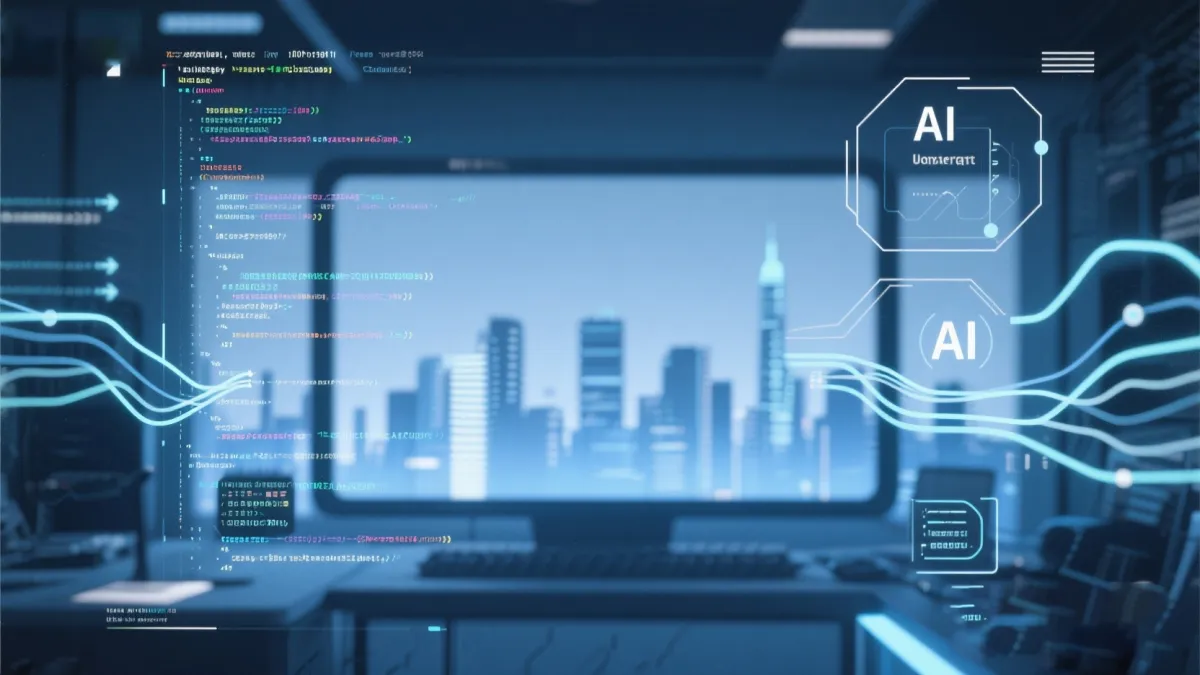
Software Development in the AI Era: ChatGPT and Programming Efficiency
Article Summary
Exploring how AI tools are changing software development processes, improving programming efficiency and code quality.
Artificial Intelligence is transforming the way software is developed. The emergence of AI tools like ChatGPT and GitHub Copilot provides developers with powerful code generation and problem-solving capabilities. This article explores how to effectively leverage AI tools to improve programming efficiency while analyzing the profound impact of AI on the software development industry.
The AI Revolution in Development
The integration of AI into software development represents one of the most significant shifts in the industry since the advent of high-level programming languages. AI-powered tools are not just changing how we write code; they're reshaping the entire development workflow.
GitHub Copilot Launch
First mainstream AI coding assistant
ChatGPT Release
Conversational AI for code generation
GPT-4 & Code Interpreter
Advanced reasoning and code execution
Mainstream Adoption
AI tools become standard in development
Key AI Development Tools
GitHub Copilot
ChatGPT and GPT-4
Specialized AI Tools
Practical Applications
Code Generation
Prompt: "Create a function to validate email addresses with regex"
import re
def validate_email(email):
"""
Validate email address using regex pattern.
Args:
email (str): Email address to validate
Returns:
bool: True if email is valid, False otherwise
"""
pattern = r'^[a-zA-Z0-9._%+-]+@[a-zA-Z0-9.-]+\.[a-zA-Z]{2,}$'
return re.match(pattern, email) is not NoneDebugging Assistance
Error Analysis
Understand complex error messages and stack traces
Root Cause Identification
Find the actual source of issues beyond symptoms
Solution Suggestions
Provide multiple fix options with explanations
Prevention Tips
Suggest how to avoid similar issues in the future
Code Review and Optimization
Performance Analysis
Identify bottlenecks and optimization opportunities
Security Vulnerabilities
Detect potential security issues and suggest fixes
Code Quality
Suggest improvements for readability and maintainability
Best Practices
Ensure adherence to coding standards and conventions
Workflow Integration
Planning Phase
- Use AI to analyze requirements and suggest architectures
- Generate project structure and boilerplate code
- Create comprehensive technical documentation
Implementation Phase
- Real-time code completion and suggestions
- Automated test case generation
- API documentation generation
Testing Phase
- Generate unit tests for existing code
- Create test data and mock objects
- Identify edge cases and scenarios
Deployment Phase
- Generate deployment scripts and configurations
- Create monitoring and logging code
- Document deployment procedures
Best Practices for AI-Assisted Development
Understand the Generated Code
Do
- Review and understand every line
- Test thoroughly before integration
- Modify to fit your specific requirements
Don't
- Blindly copy AI-generated code
- Skip code review processes
- Ignore testing requirements
Maintain Code Quality
Security Considerations
Impact on the Industry
Productivity Gains
Skill Evolution
Challenges and Considerations
Over-reliance
Risk of losing fundamental coding skills
Code Quality
Ensuring AI-generated code meets standards
Intellectual Property
Understanding licensing and ownership
Privacy
Protecting sensitive code and data
Future Outlook
Specialized AI Models
Domain-specific coding assistants for different industries
Full-stack Generation
AI creating entire applications from requirements
Natural Language Programming
Code generation from conversational descriptions
Automated Testing
AI-generated comprehensive test suites
Career Implications
Conclusion
AI tools are fundamentally changing software development, offering unprecedented opportunities to improve efficiency and code quality. However, successful integration requires understanding both the capabilities and limitations of these tools. Developers who learn to effectively collaborate with AI while maintaining their core programming skills will be best positioned for success in this new era.
Key Insights:
Collaboration over Replacement
View AI as a powerful assistant rather than a replacement for human creativity
Balance is Key
Combine human insight with AI capabilities for optimal results
Continuous Growth
Keep developing core skills while embracing AI tools